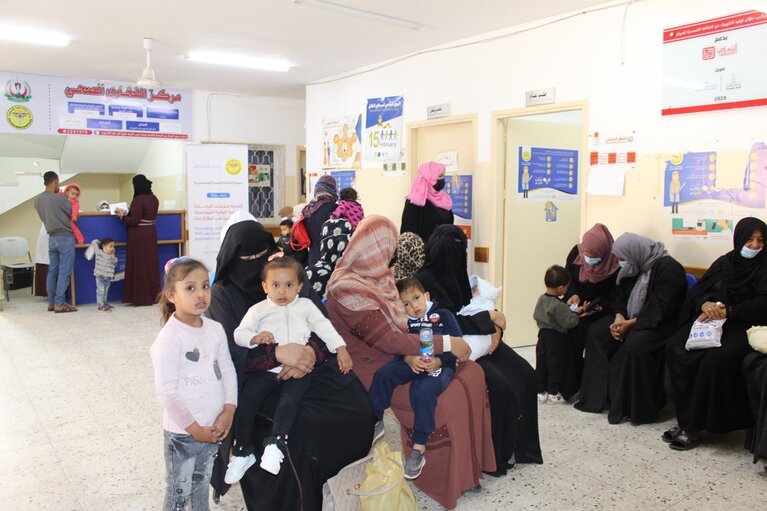Providing free health care to people in Gaza
Hiba (12) and her brother Hasan (16) are doing much better now; they finally got the health care that they needed so much. The entire family is happier and more relaxed.
Accessing medical services is challenging for many in the occupied Palestinian territory, where 1.5 million Palestinians require health-related humanitarian assistance. Two in every three of them live in Gaza, just like Hiba and Hasan. The high dependency on health support in this small blockaded enclave results from recurring escalations of hostilities; the Israeli blockade and other challenges to movement; a weakened, overstretched medical system locally; the internal Palestinian political divide; and limited resources. All of these have recently been coupled by the ongoing COVID-19 pandemic.
Hiba and Hasan live with six other siblings and their parents in a village bordering with Israel, in the southern Gaza Strip. For over a year, Hiba, suffered from urinary incontinence and Hasan had a prolonged urinary infection. Hiba’s condition was extremely unpleasant, and negatively stigmatized in her community. Hasan had constant presence of blood in his urine, and his condition was painful and concerning.
However, their parents could not afford securing their children with the care that they needed so much. “I was relying on traditional home remedies to no avail,” their mother Hana’ (37) recalls.
Hana’ is a housewife and her husband (42) is unemployed. They make their living from humanitarian aid and ministry of social affairs. They can’t afford the cost at a private clinic. “I was worried for them. My son’s case could have become complicated.” Hana’ adds
In October 2021, Hana’ heard about free health care services provided in a nearby clinic. Without any delays, she rushed there with her children. That clinic is one of four providing free health care to families in need thanks to a project implemented, starting August 2021, by the Palestinian Medical Relief Society (PMRS), supported by the occupied Palestinian territory Humanitarian Fund (OPT HF).
As part of this projects, the clinics’ stocks were replenished with much needed drugs and laboratory reagents. They were supported to offer services in general medicine, child health, management of chronic disease, women’s health services and are equipped with laboratories and diagnostic equipment.
For Hiba and Hasan, results were almost immediate. “Finally, it was all resolved”, Hana’ explains with a sigh of relief. “Thank God, my son has become much better. Neither blood nor pain. There are many families like ours, where people need treatment but can’t afford it. Now, we all come to this local clinic and get quality medical care free of charge.”











